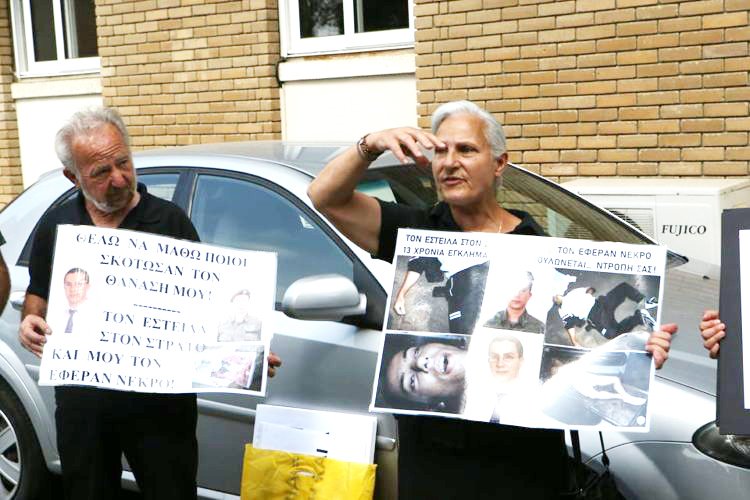The family of Thanasis Nicolaou, a conscript who was killed in 2005, will pursue private legal action after the attorney-general’s office refused to press charges, effectively closing the door on a state-led prosecution.
Lawyer and independent criminal investigator Savvas Matsas described the legal service’s decision as “completely wrong,” saying that when differing legal interpretations exist, the case should be decided in court.
Thanasis’ mother, Andriana Nicolaou, confirmed on Thursday that the legal service had opted not to file any criminal charges over her son’s death. She said the family would not accept the decision and would consult with their lawyers about next steps.
The legal service also rejected the family lawyer’s request for the appointment of independent criminal investigators to prepare and file a case at the criminal court. This leaves the family with only one path forward — initiating private legal proceedings at the district court level, which can issue maximum sentences of up to five years.
In order for the case to reach the criminal court, it must be handled by the attorney-general.
The family is also considering a new appeal to the European Court of Human Rights, as this marks the second time the attorney-general has halted the case from proceeding to trial. However, even private prosecutions may be blocked, since the attorney-general also holds the authority to suspend those.
He has previously stated that he would not obstruct such efforts.
“This is a case that concerns all of society,” Matsas told the Cyprus News Agency. “We all have children and grandchildren in the army. We cannot live with the risk of drug dealers killing them. This is a broader issue.”
He warned that “if there is no justice, everything will collapse.”
Matsas noted that former state pathologist Panicos Stavrianos is facing six potential charges, including perjury, cover-up, and destruction of evidence — yet none of this was addressed in the legal service’s announcement.
He added that while he believes the family should move ahead with private prosecution, the decision ultimately rests with them.
“If they are prevented from doing so, they will appeal to the European Court of Human Rights,” he said.
Stavrianos had ruled in 2005 that Nicolaou, who was found dead under a bridge near the Limassol district village of Alassa, had committed suicide, while his mother Andriana Nicolaou had for nearly two decades campaigned to have Stavrianos’ ruling overturned.
This led to Nicolaou’s bones being exhumed and examined in 2020, with new information coming to light thereafter leading to the conclusion that his death was due to a criminal act and not a suicide.
Last year, the Limassol district court ruled that Nicolaou had been strangled to death, prompting President Nikos Christodoulides to appoint Athanasiou and Pappas to conduct a fresh investigation.
Stavrianos claimed after the Limassol ruling that he had been wronged, appealing it at the Supreme Court on the basis that he had not been allowed to testify in the Limassol case.
Stavrianos later appealed the Limassol court ruling, arguing he had been wronged by not being allowed to testify in the case. While the Supreme Court acknowledged this procedural error, it ultimately rejected his appeal, stating that overturning the decision would “not serve any purpose” given the “public interest and justice.”
His final appeal was dismissed in February. His legal team now claims he was poorly treated during that hearing.






Click here to change your cookie preferences